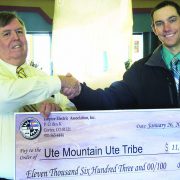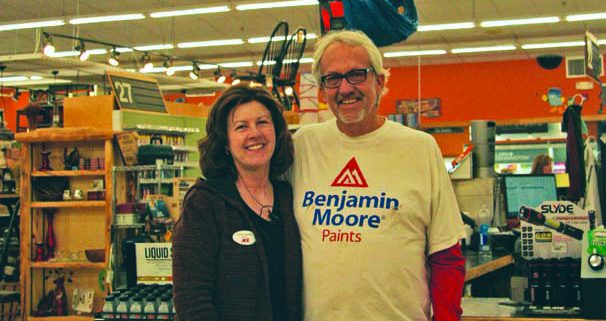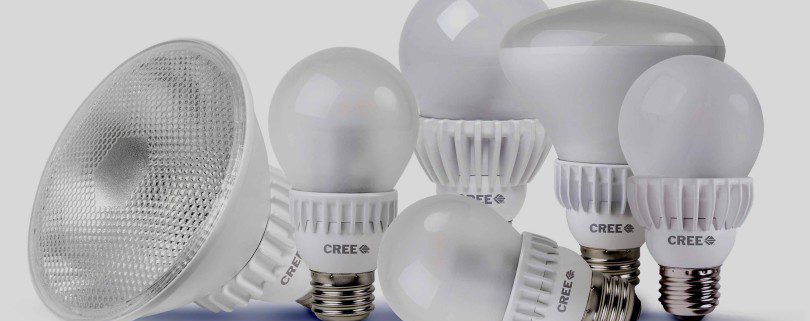Businesses, Schools Get Paid for Energy Efficient Upgrades

Bob Brooker, Ute Mountain Travel Center and Casino General Manager, receives a rebate check from Dellinger.
Empire Electric Association’s general manager, Josh Dellinger, has been busy presenting substantial rebate checks to two local businesses and a high school that recently improved their buildings’ energy efficiency.
Montezuma-Cortez High School Superintendent Alex Carter received a check for $138,400 for the ground source heat pump installation in the new high school. EEA and its power supplier, Tri-State Generation and Transmission, each provided rebates of $69,200. The heat pumps are controlled by a computerized system that maintains constant classroom temperatures between 72 and 74 degrees.
The Ute Mountain Travel Center and Casino received a rebate check for $11,603 for the installation of LED parking lot lighting. The new lighting is more efficient and brighter than previous lighting and will save money each month on the casino’s electric bill.
One of the owners of Kokopelli Bike & Board of Cortez, Pete Eschallier, received a rebate check for $2,878.50 after installing LED lighting in the showroom. There are now fewer lights operating at less cost while providing brighter lighting for customers.





